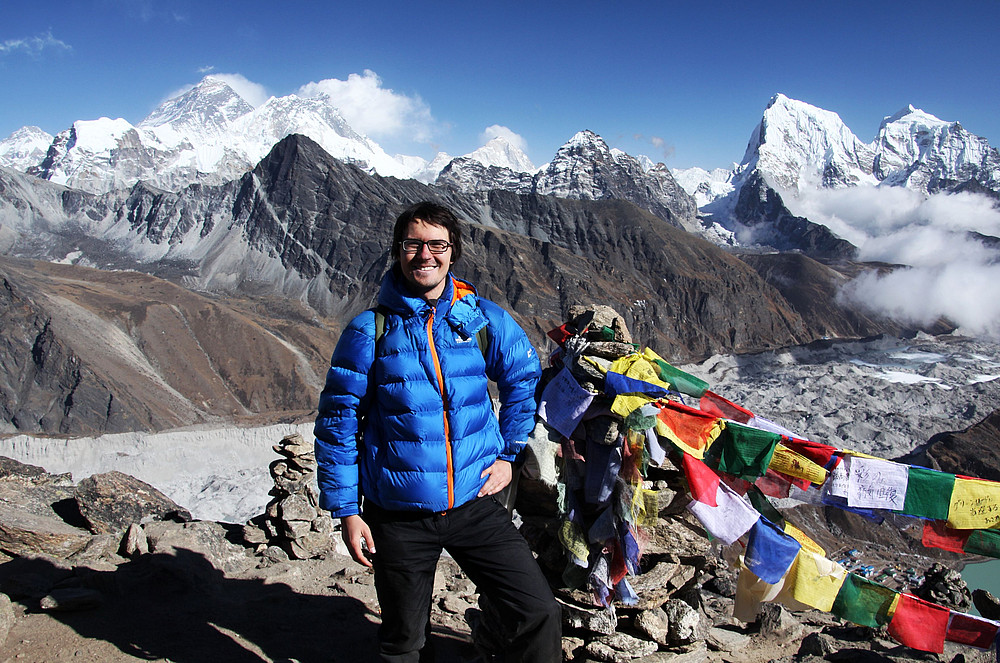
Martin Mergili - Professor of Physical Geography 2
What exactly does a professor of physical geography do?
That's not so easy to say, as physical geography is a very broad field. Colleagues of mine deal with soil erosion, the dynamics of ecosystems distribution, glacier and permafrost retreat and many other socially relevant phenomena of the physical environment. The methods entailed range from field work in the high mountains, laboratory analyses and the evaluation of satellite images to the modeling of climate impacts or landslides. I myself have specialized in the computer simulation of mass movements. However, a large part of my work also consists of imparting knowledge and skills to students. A very broad knowledge base is required here, especially for the large basic lectures in the bachelor's program.
What do you find particularly socially relevant about your work?
We are currently working on a project that aims to raise awareness of geomorphological processes. To this end, we are working very closely with the Austrian UNESCO Global Geoparks and generating immersive virtual reality environments in which visitors to the geoparks can experience landslides up close but playfully and in a safe manner. We are focusing here on arousing emotions in order to make people even more interested in and aware of the processes and their possible effects. Initial trials have shown that we can reach a wide range of age groups and, above all, people with no relevant technical background.
Andrea Steiner - Professor for Climate Analysis
Professor for
What exactly does a professor of climate analysis do?
In my research, I analyze climate changes in the atmosphere using high-precision satellite data. Such data make it possible to identify the "fingerprint" of various events and influences. Short-term natural climate fluctuations can be clearly distinguished from man-made long-term climate trends. Topics include the analysis of atmospheric variability, the detection of climate trends and their causes, the investigation of extremes (e.g. blocking, volcanic eruptions, forest fires) and the effects of climate change, e.g. on weather and climate extremes.
What do you find particularly socially relevant about your work?
A prerequisite for counteracting climate change is knowledge of its causes and effects. My research provides clear facts about the changes in the atmosphere. With highly accurate measurement data, we can clearly distinguish man-made global warming from natural fluctuations. Information on atmospheric warming, extreme events and the effects on both a global and regional level is highly relevant for our society.
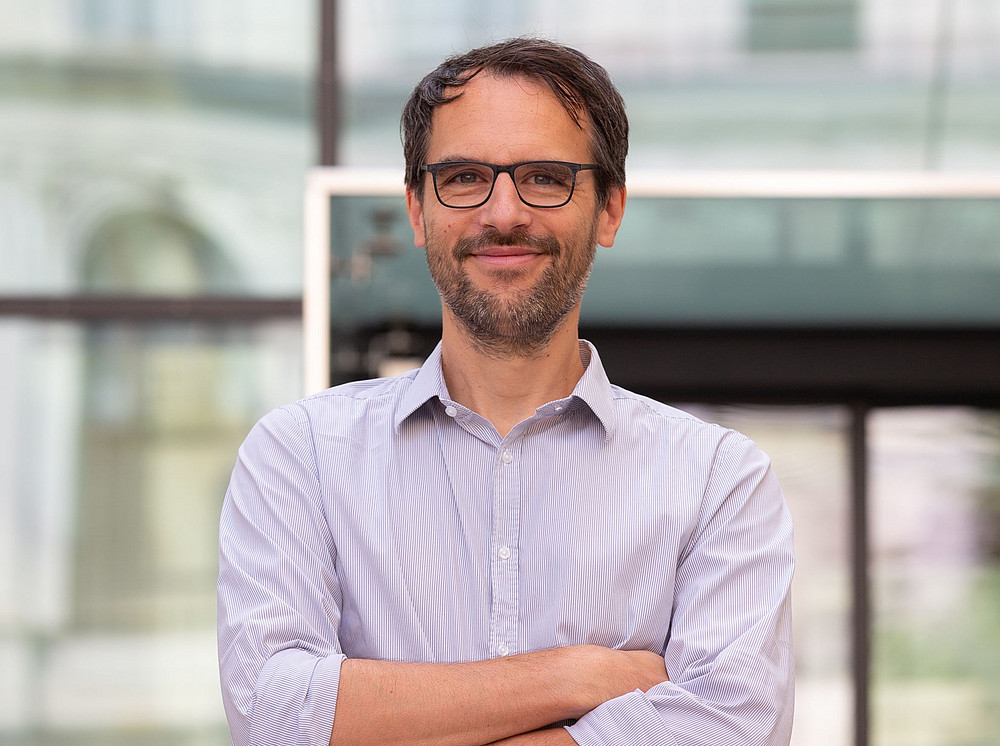
Sebastian Ruin - Professor of Physical Education and Sports Pedagogy
What do you find particularly socially relevant about your work?
Educational work is particularly relevant to society as it is directed towards the future. At its core, it aims to prepare (young) people to participate in and contribute to shaping society. However, in many areas of education, there is a very strong focus on cognitive issues - i.e. on thinking skills. Sports education, on the other hand, addresses the physical and bodily aspects of our humanity as well as, and in association with thinking. In addition to dealing with the body, movement, sport and health, my field also entails key aspects of general education. For example, democratic coexistence, respect and tolerance - characteristics of a diverse society - can be directly experienced and initiated here.
What aspect of your work is particularly enriching for you?
What I find particularly rewarding about my work is that I am constantly in contact with many different people. This applies to both university teaching and research. I consider it a privilege to be able to research pedagogical contexts, develop and test ideas and discuss all of this with others time and time again. Pedagogical issues always have to do with people and other people always open up new and important perspectives. This, coupled with the awareness that I am working on something that has social relevance, is what I find particularly rewarding. If I then succeed in giving a few people something that will help them in their future career I believe that I have also achieved something worthwhile.
Catherine Walter-Laager - Professor of Elementary Education
What do you find particularly socially relevant about your work?
Elementary education clarifies important issues relating to the education and care of young children in both a familial and institutional context. Any progress made in this area which benefits children is also a benefit for all of us since it is children who shape our future social reality.
What aspect of your work is particularly enriching for you?
I find it highly rewarding when our publications become a source of inspiration for other scientists and inspire them. I am also very pleased when families, professionals or policymakers make use of, or reflect upon, our work when deciding upon a course of action.
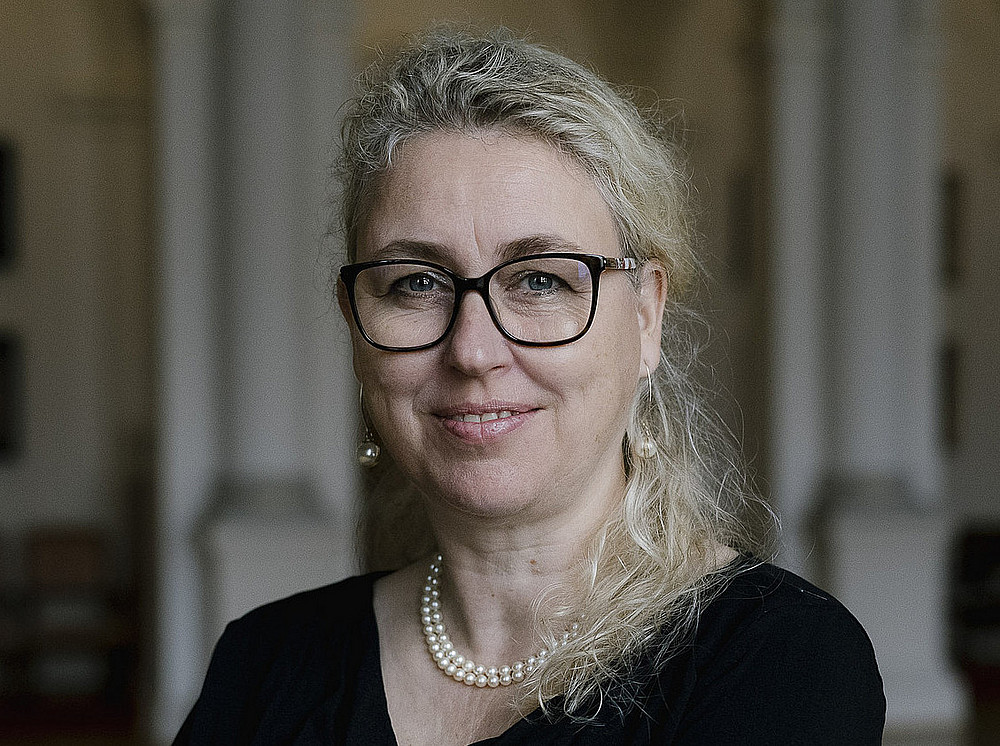
Manfred Füllsack - Professor of Systems Science
is of the opinion that in order to clarify, and perhaps also to solve pressing environmental or social problems, it can be helpful to consider such problems as the result of interactions among a number of different phenomena rather than as distinct items calling for individual analysis. One well-known example of this is density-induced traffic congestion. In order to ascertain the cause of such congestion one needs to look ath the multiple interactions between individual drivers rather than at individual driver behavior, i.e. at the various reactions of drivers to each other. The same applies to many other pressing problem areas, from the creation of a social consensus on waste separation to the causes of global warming.
However, as interactions are difficult to observe in all their complexity - they usually take place very quickly and simultaneously on many levels - systems scientists need a specific tool for their analysis, for example, to document their characteristics, slow them down, or repeat them at will, etc. This tool is the digital computer. This tool is the digital computer. Computer-based modeling and simulation of complex interactions - which we call "systems" - is therefore the main working tool of systems scientists.
The "funniest" thing (probably for the students) that has happened to me in the lecture hall so far was when I tried to use a headset with a micro in front of a full lecture hall with around 200 students. I wanted to put the wireless module connected via cable into my trouser pocket, but forgot that it had a hole, whereupon the wireless module slipped through to my shoes and could then only be separated from the headset with a few contortions and much laughter from the students.
Tobias Stern - Professor for Innovation and Transition Research
What exactly does a professor of innovation and transition research do?
I examine new developments (technologies, products, behaviors) of all kinds and how they could change our society and make it more sustainable. I am particularly interested in biomass and everything that can be made from it. The amount available is limited, but the theoretical possibilities are almost unlimited.
What aspect of your work is particularly enriching for you?
Working with intelligent, young people on topical and highly relevant social issues while being free and independent at the same time. I find it a great privilege to be able to work in such a field.
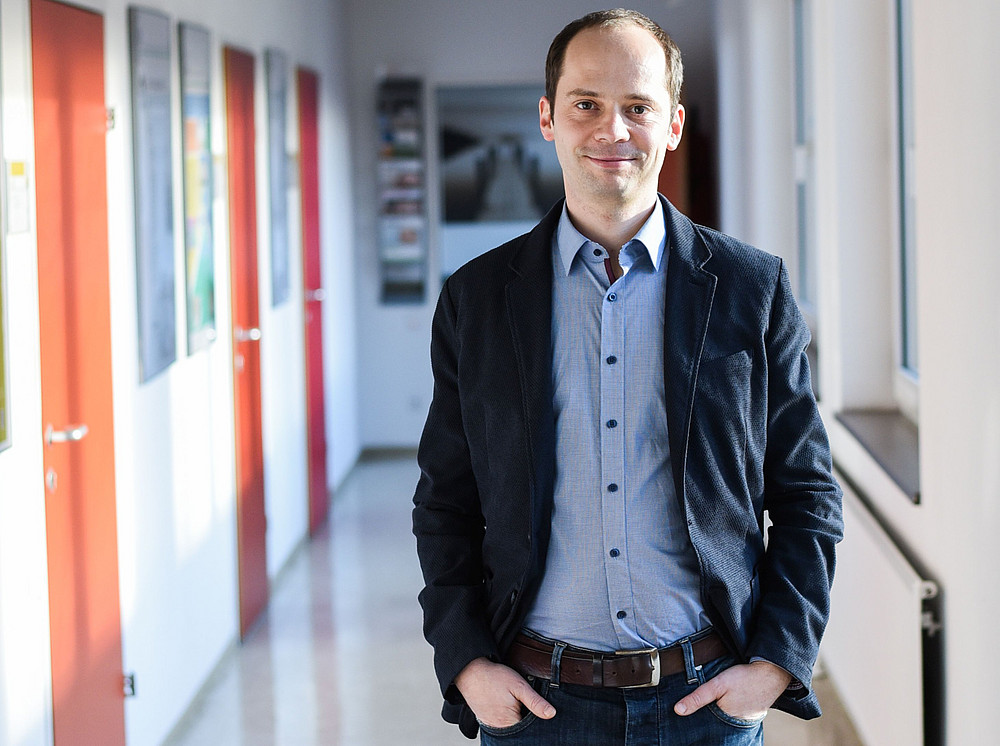
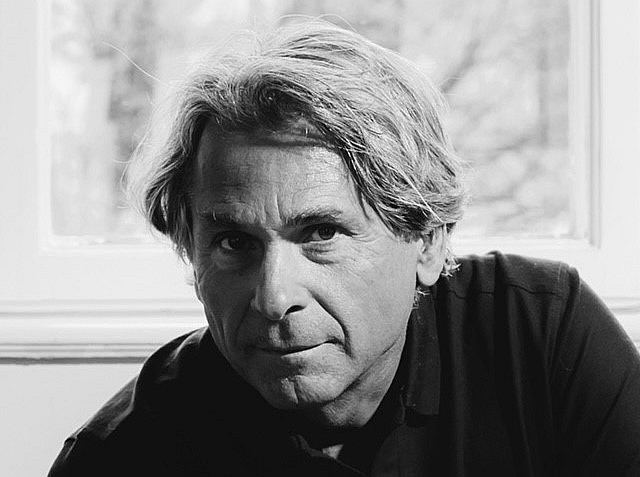
Rudolf Egger - Professor of Learning Environment Research and University Didactics
What exactly does a professor of learning environment research and university didactics do?
People shape their world through learning, bus this is not based solely on cognition. For example, we learn together with and from other people, in a variety of situations and places. These learning environments are shaped by the real world and provide the basis for a subjects' acquisition skills and performance. At the same time, through reflection, subjects also create those forms of self-will that make up our individuality. We investigate these processes in biographical, social and regional contexts.
What do you find particularly socially relevant about your work?
As we believe that education cannot be planned and is not linear, our projects are based on the assumption that people define themselves and develop as individuals primarily through everyday relationships in their everyday lives. That's why we take people's everyday problems and a pragmatic problem-solving approach as a starting point for analyzing how they make their decisions.
Anke Strüver - Professor of Human Geography
As a professor of human geography with a focus on social-geographical urban research, I deal with social structures and spatial productions in everyday life that are (not) linked to social justice and ecological sustainability. While the necessary measures for urban transformation in times of crises in social care, energy, biodiversity and climate crises are now known, their implementation remains lacking. However, in order to illustrate that this is not simply a question of individual responsibility, I therefore deal with the transformation of structural conditions at the local level based on embodiment and subjectivation processes in relation to the themes of health, exercise, nutrition and digitalization.
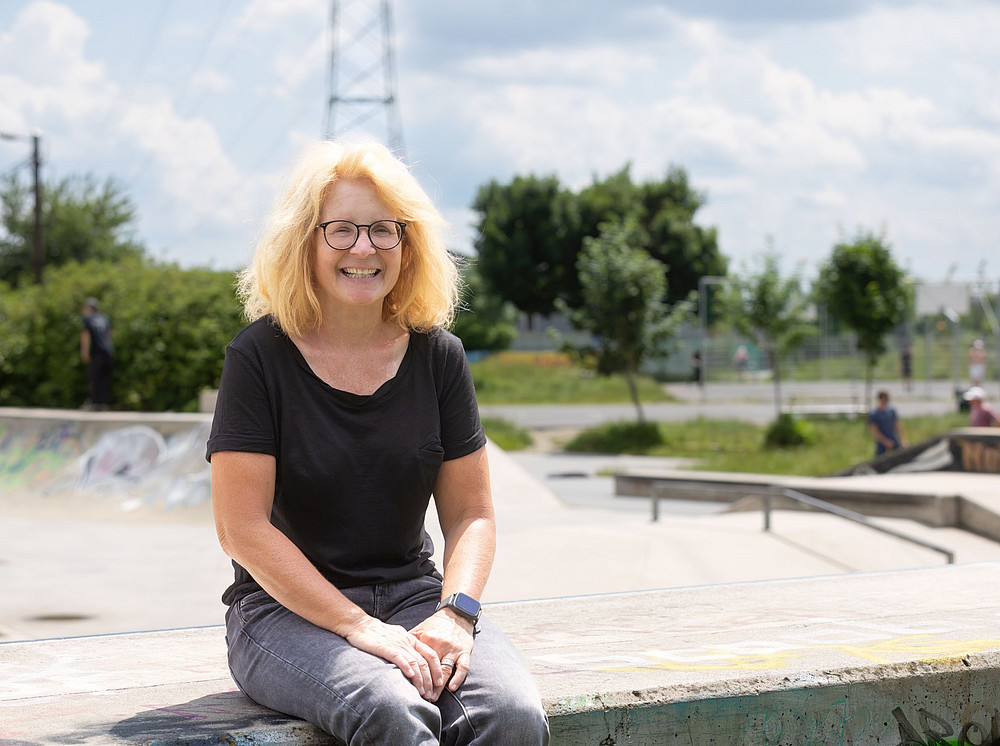
For me, the social relevance of the field lies in its fundamental skepticism with respect to the adoption of technology - and/or profit-driven solutions to the major and minor problems of our time. Clearly, no socially just ecological sustainability or future viability can be achieved without social change - and this is true at both the global and local level. With regard to teaching, this implies constantly working with local examples. While numerous problems exist, both in Graz and at the University of Graz, their solutions are also frequently to be found on the ground. A professor of socio-geographical urban research therefore often "just" needs to go out and observes!
Arno Heimgartner - Professor of Social Pedagogy
What exactly does a professor of social pedagogy do?
Social pedagogy deals with the social services provided by society. Some people also refer to it as dealing with the shaping of social phenomena. This begins in childhood and adolescence; child and youth welfare, school social work and youth work are all examples. However, many adults also find themselves in situations - e.g. due to psychological problems, relationship crises, migration or displacement, drug use, poverty, etc. - in which they need outreach services, mobile or semi-stationary services, counseling services, housing support and/or help with resettlement in order to cope with themselves, their everyday lives and to establish plans for the future. The interactive, institutional and infrastructural concepts of these prevention and intervention measures are all the subject of socio-pedagogical research.
What do you find particularly socially relevant about your work?
Social pedagogy is based on the principles involved in living together. Social progress occurs, for example, by facilitating a person's participation in society and by designing conditions of growing up and living are designed in such a way that children, young people and adults can grow and develop better and more fairly. The question of how quality social services are designed, who in families or organizations should contribute, and how social actors are to be trained in this respect, is a very fundamental question for society. It is also a very emotional question because it affects the personal biographies and relationships of individuals and at the same time has an impact on social goals and prosperity.
Annette Sprung - Professor for Migration and Education
What do you find particularly socially relevant about your work?
Migration entails global movement in more ways than one. Never before have so many people been on the move. Migration has long been a constitutive feature of social change. The increasing diversification of societies contributes to progress and innovation, but also harbors the potential for conflict and can often trigger fears and defense mechanisms. Migration research therefore deals with a highly topical, complex subject area - an area in which interdisciplinary approaches are particularly relevant. The educational science perspective is dedicated, among other things, to the question of the extent to which learning and educational processes can contribute to a constructive and peaceful approach to social change.
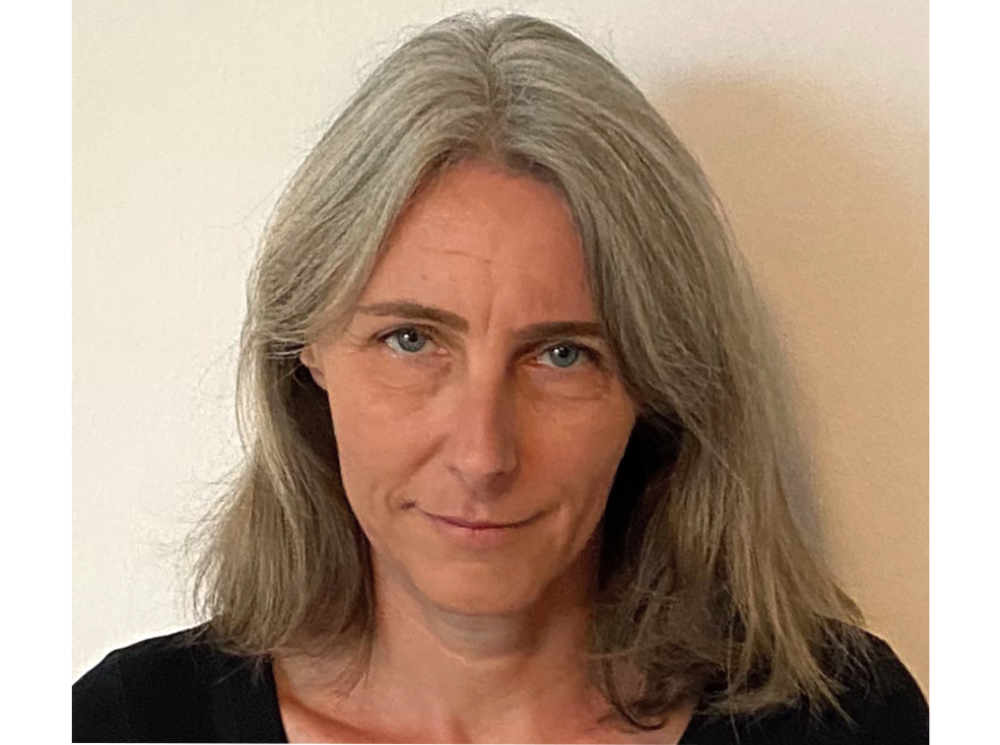
What aspect of your work is particularly enriching for you?
Our team's research is often not only interdisciplinary, but also transdisciplinary. This means that we cooperate closely with non-academic stakeholders. These are, for example, NGOs, migrant communities and representatives from politics and administrative bodies - or in other words: we conduct research together with people and organizations that are directly affected by the respective topics. This allows us to make a very concrete contribution to solving social challenges with our research. At the same time, as researchers in such constellations, we are constantly learning from our partners. In university teaching, for example, discussions with students who are highly committed to social justice and peaceful social coexistence, continue to be a clear source of strength for me.
Markus Tilp - Professor of Human Movement Science
What exactly does a professor of exercise science do?
When someone stands up and gets a coffee, it usually looks simple, but it is more complex than you might think. The body has to decide at any given moment which of its 656 muscles to activate and how strongly to move its 206 bones over 140 joints without spilling coffee. I work on how our muscles and tendons adapt, for example through physical training, so that these and even more complex movements can succeed. Our research group also looks at how impairments to the neuromuscular system, caused by illness or injury, can be reduced.
What aspect of your work is particularly enriching for you?
I feel happiest in my job when I am able to share my research thoughts on human movement with others with similiar interests and can discuss how a solution to research questions may be developed. My happiness is even greater when a solution to a set problem is subsequently found experimentally.
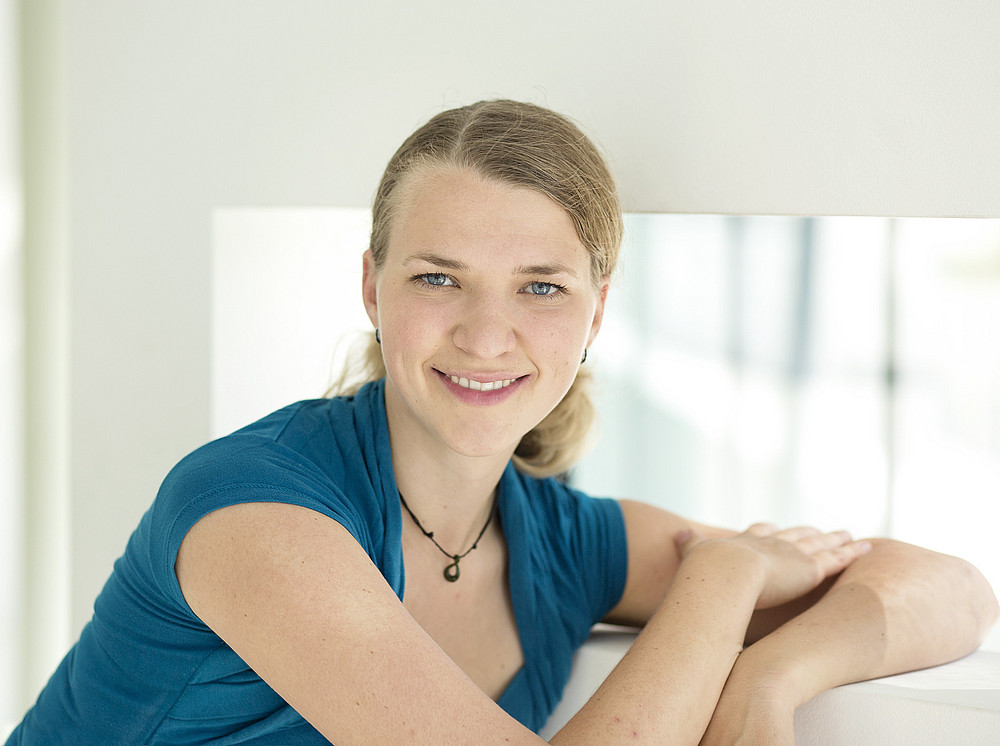
Susanne Seifert - Tenure Track Professorship for Inclusive Education
What exactly are you working on?
Supporting children and young people with special support needs in the area of speech and written language is the main focus of my research. In my research projects, I try to develop and test output that can be of direct or indirect help to this target group - for example, test procedures that are needed to provide tailored support, but also materials that are used for support and encouragement. Owing to their great potential for use in both diagnostics and support, we develop digital tools and examine them in terms of their difference and added value compared to analog methods.
What aspect of your work is particularly enriching for you?
Reading is very important to me in my life. I love to immerse myself completely in stories and to discover facets of the world and people through reading that I can't otherwise discover so intensively in such a wide variety of ways or in such a short space of time. However, due to various difficulties, some children and young people are denied this opportunity. I find it very enriching that my work enables me to develop opportunities for at least some of these children to (better) master learning to read